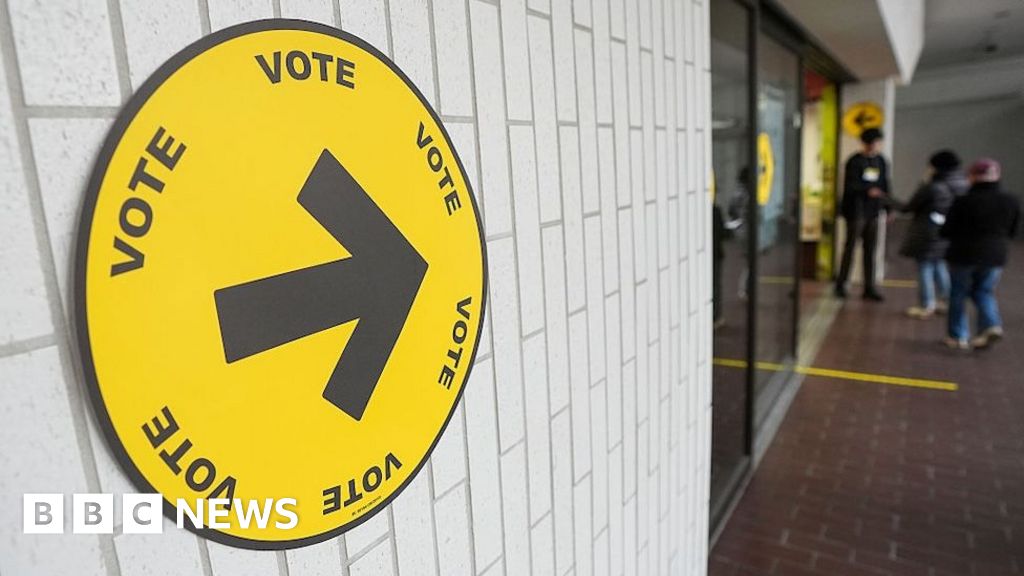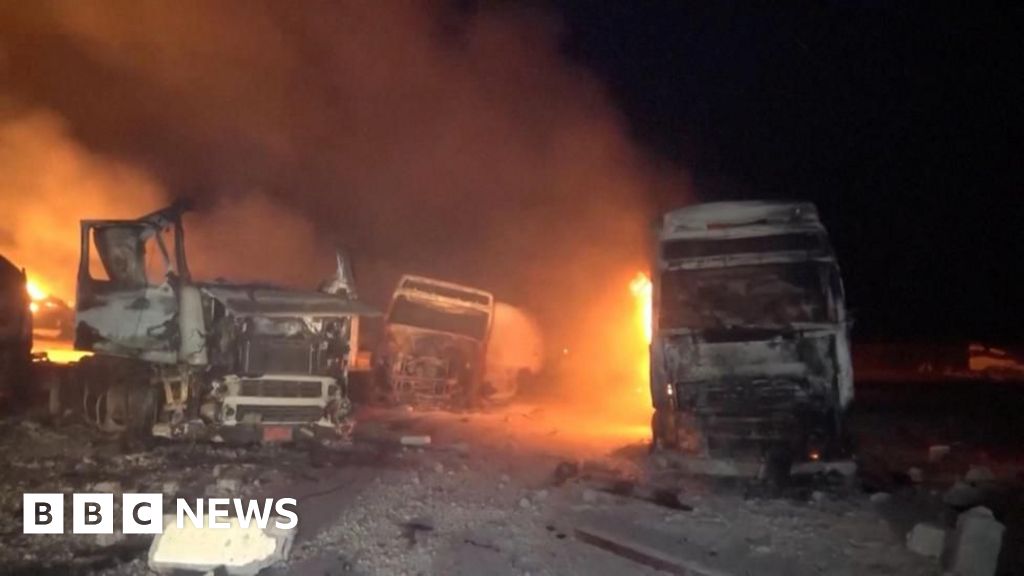ARTICLE AD BOX
Ambulances took the 160 passengers to a local hospital
At least 13 passengers, who tested positive for Covid-19 upon their arrival in the Indian city of Amritsar, have escaped institutional quarantine.
They were among 125 infected passengers on a chartered flight from Milan which landed on Wednesday afternoon.
While nine of them escaped from the airport, four others ran away from a local hospital, city official Sherjang Singh told BBC Punjabi.
Police said they would file complaints against all of them.
India reported more than 100,000 cases on Friday - experts believe Omicron is causing the sharp jump in infections the country has seen in the last week.
A total of 160 passengers were travelling on the Italy-India flight. Reports said that children and infants - about 19 of them - were exempt from testing.
TV footage showed ambulances lined up at the airport to take the infected passengers to hospital as crowds gathered outside the gates.
All infected passengers were admitted to the city's Guru Nanak Dev Hospital, officials said.
It's unclear how four of the passengers escaped from the airport, but authorities at the hospital told NDTV channel that the nine who fled the hospital allegedly "tricked the health officials".
Police said that they have initiated proceedings to cancel their passports.
"If they don't return by morning, we will publish their photos in the newspaper and register cases against them," Deputy Commissioner of Amritsar Gurpreet Singh Khehra told NDTV.
Punjab, where Amritsar is located, is among several states that have brought back curbs to fight the rise in Covid-19 infections. On Tuesday, the state imposed a temporary night curfew and shut all schools and colleges.
India has so far recorded more than 35 million Covid cases and around 483,000 deaths from the virus.
You might also be interested in:
Life in India's capital has changed beyond recognition under a deadly second wave of Covid-19 infections

 3 years ago
33
3 years ago
33








 English (US) ·
English (US) ·